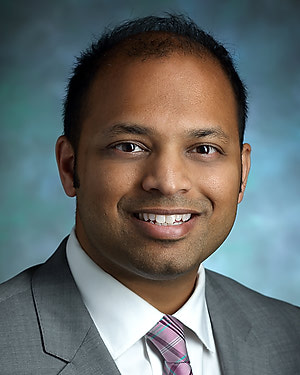Background
Dr. Akhil Chhatre is an assistant professor of physical medicine and rehabilitation and neurological surgery at the Johns Hopkins University School of Medicine. He is director of spine rehabilitation at Johns Hopkins.
Dr. Chhatre sees and treats adults with a wide range of spinal diseases and disorders, including neck and low back pain, lumbar and cervical degenerative disease, scoliosis, spinal stenosis, facet joint disease, whiplash syndrome, sacroiliac and appendicular skeletal joint disease, and peripheral neuropathy.
He has a special interest in helping patients regain function and reduce pain using non-surgical techniques and performing pain-reducing medicinal procedures, including steroid injections, nerve blocks and radiofrequency denervation.
He received his medical degree from the University of Missouri School of Medicine and completed his residency in physical medicine and rehabilitation at the University of Kansas Medical Center School of Allied Health. He performed his fellowship in interventional spine and sports medicine at the University of Pennsylvania. Previously, Dr. Chhatre worked as an interventional spine and sports fellow at the Hospitals of the University of Pennsylvania after completing a residency in physical medicine & rehabilitation at the University of Kansas Medical Center.
Dr. Chhatre is a member of the American Academy of Physical Medicine & Rehabilitation, the International Spine Intervention Society, and the North American Spine Society.
For information on conditions he treats and for scheduling information, please reviewing this document.





Patient Ratings & Comments
The Patient Rating score is an average of all responses to physician related questions on the national CG-CAHPS Medical Practice patient experience survey through Press Ganey. Responses are measured on a scale of 1 to 5, with 5 being the best score. Comments are also gathered from our CG-CAHPS Medical Practice Survey through Press Ganey and displayed in their entirety. Patients are de-identified for confidentiality and patient privacy.